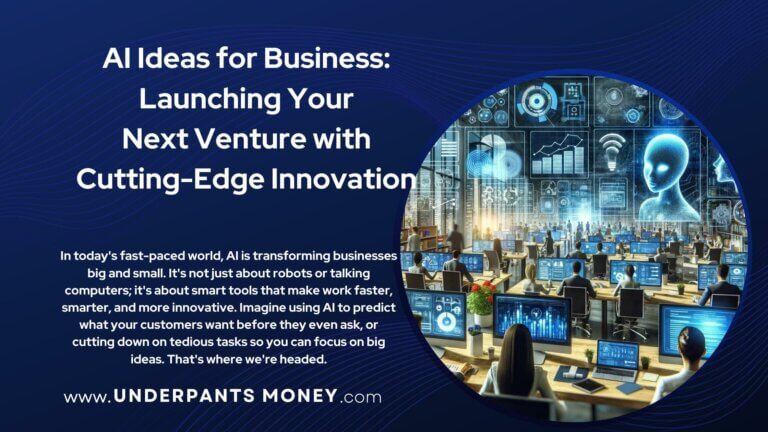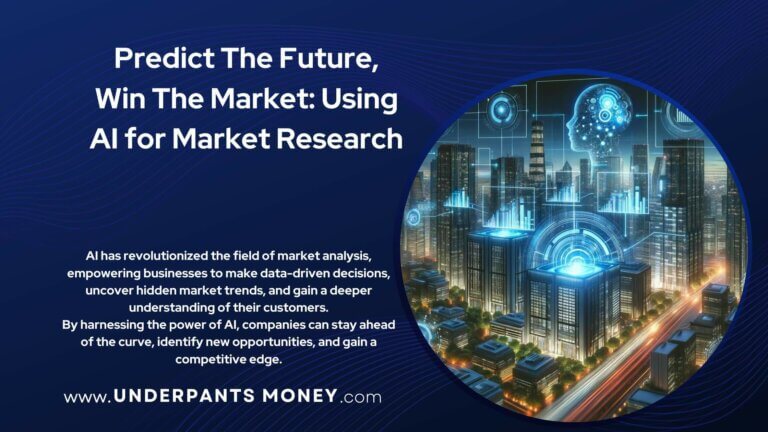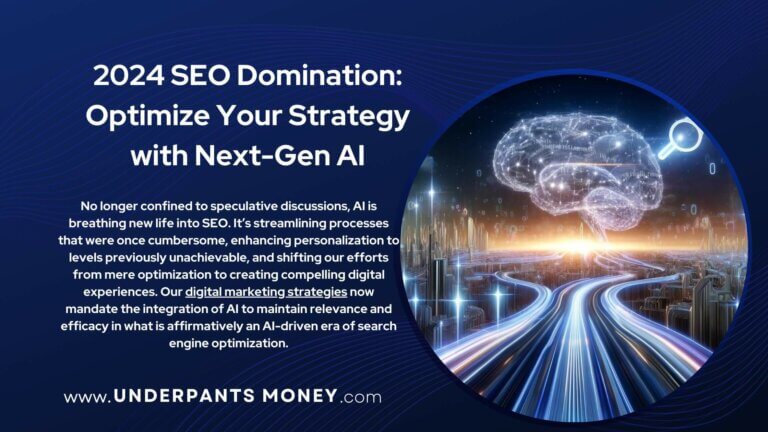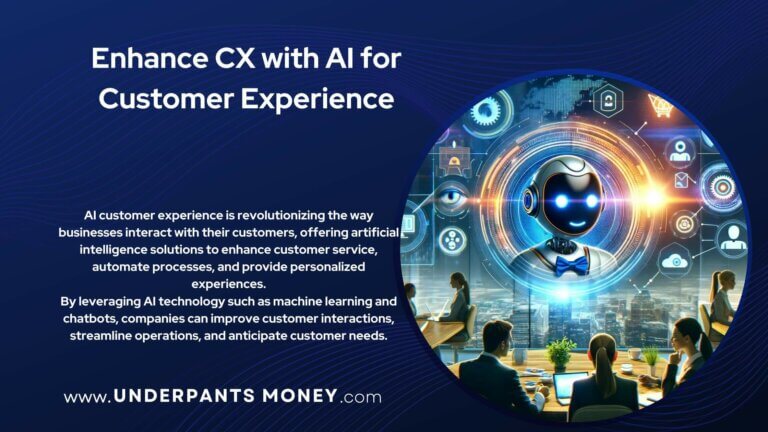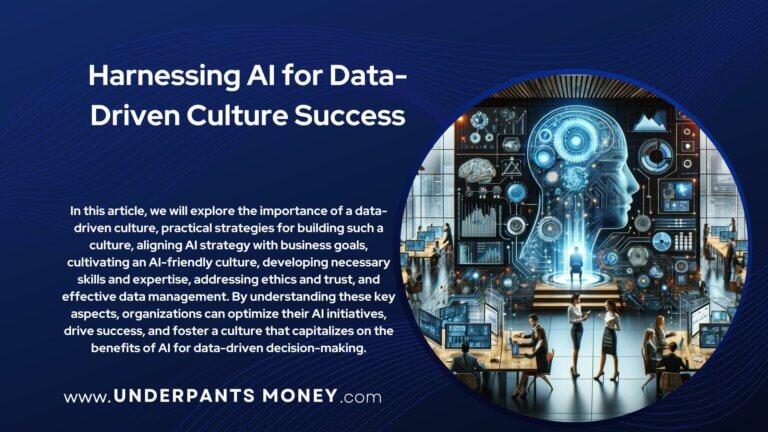Uncover Hidden Gems: AI-Powered Customer Insights for Success
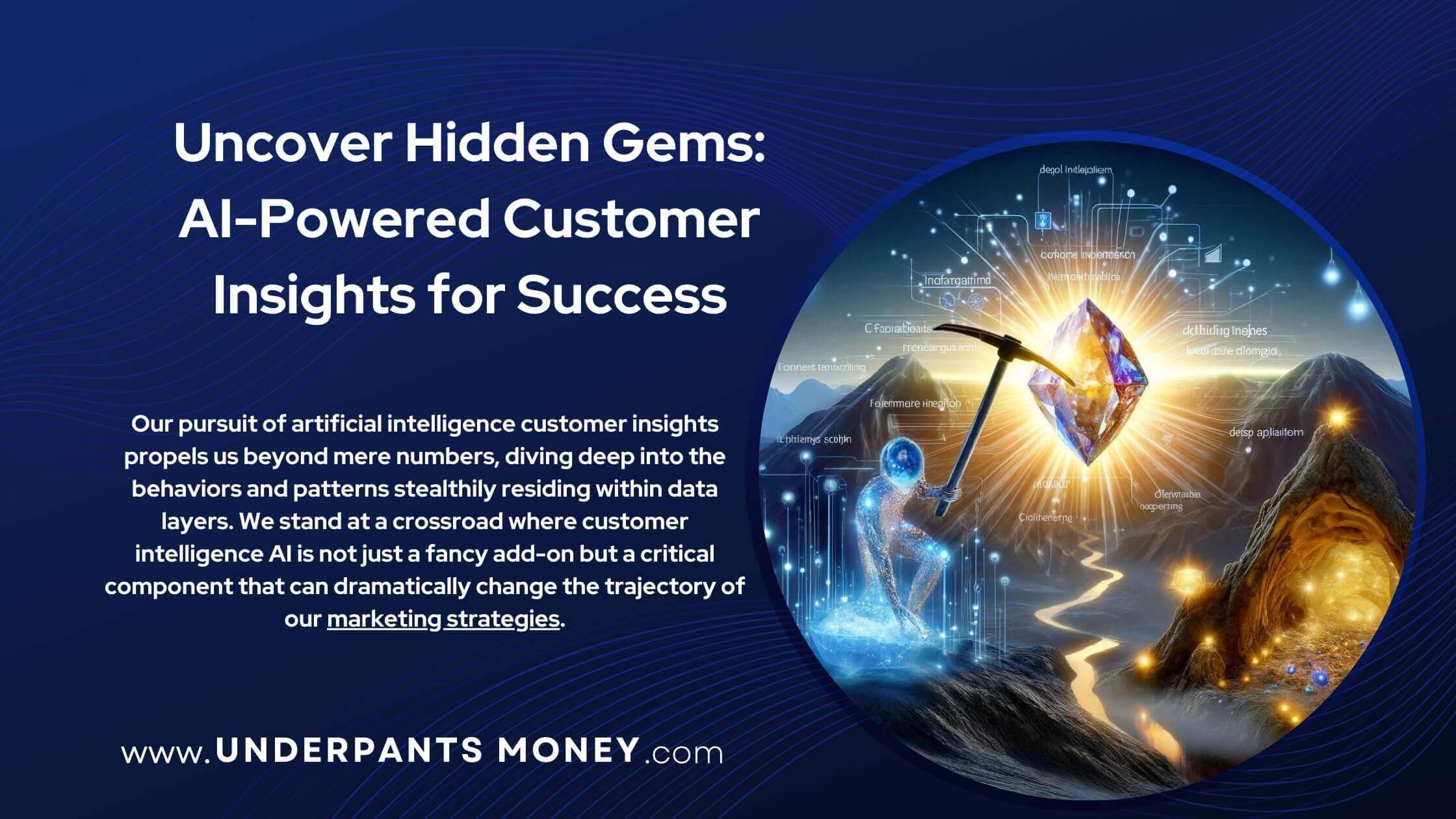
Did you know that a Gartner study forecasts that by 2024, a whopping 80% of marketing leaders will have adopted AI for customer intelligence as a primary tool in market research? In a world brimming with data, it’s AI that promises to be our beacon, guiding us to glean meaningful and actionable customer insights from an otherwise overwhelming sea of information. Our pursuit of artificial intelligence customer insights propels us beyond mere numbers, diving deep into the behaviors and patterns stealthily residing within data layers. We stand at a crossroad where customer intelligence AI is not just a fancy add-on but a critical component that can dramatically change the trajectory of our marketing strategies.
As we continue to navigate this data-rich environment, we rely on AI for customer intelligence to augment human analysis, pinpoint consumer nuances, and tailor marketing messages that resonate on a personal level. With AI, every pixel of customer data can be transformed into a masterpiece of insight, converging to form precise audience segments, powerful predictive models, and ultimately, more successful business outcomes.

Key Takeaways
- AI for customer intelligence is setting a new standard for extracting valuable insights from big data.
- By 2024, artificial intelligence customer insights are expected to be a staple in the marketing leader’s toolkit.
- Customer intelligence AI enables the discovery of subtle patterns and trends that inform strategic decision-making.
- Utilizing AI in market research complements human expertise, providing a synergistic approach to understanding customer behavior.
- Adopting AI for customer intelligence translates into targeted marketing strategies and enhanced customer experiences.
Revolutionizing Market Research with AI
As we delve into the transformative impact of artificial intelligence on market research, we acknowledge the groundbreaking advancements that have been made possible through AI and machine learning. By intelligently analyzing vast amounts of data, these technologies are at the forefront of identifying underlying customer behaviors and paving the way for predictive analytics to enhance customer experiences.
The Rise of AI-Powered Market Research Tools
The advent of AI-powered market research tools marks a significant milestone in our ability to mine for deep insights from the often overwhelming amount of customer data. With each passing day, traditional research methods are being supplemented—and in some cases supplanted—by intelligent systems capable of uncovering patterns and providing a level of insight previously unattainable.
Enhanced Audience Segmentation and Behavior Prediction
One of the most profound capabilities AI brings to our repertoire is its influence on audience segmentation and behavior prediction. Machine learning techniques in customer behavior have led to an era where we can not only group customers based on static attributes but also predict future behaviors with remarkable precision. This predictive analytics for customer experience not only refines marketing strategies but also personalizes the customer journey, making it more engaging and rewarding.
Gartner’s Prediction on AI’s Role in Future Market Research
Gartner’s insights are highly valued within our industry, and their prediction underscores the inevitable integration of AI in market research. By 2024, their forecast suggests that a vast majority of marketing leaders will utilize AI for gathering market research insights, ensuring that artificial intelligence will become an integral component of our marketing toolbox.
AI has undeniably ushered in a new era for market research. We stand on the cusp of a revolution where machine learning and predictive analytics not only enhance our understanding of customer behavior but also redefine the customer experience. The journey ahead is one of discovery, efficiency, and unbounded potential as we embrace the capabilities of AI in our market research endeavors.
Maximizing Marketing Efficacy Through Artificial Intelligence
In the ever-evolving landscape of marketing, we’re witnessing a transformative era where Artificial Intelligence is no longer just a buzzword but an essential tool for analyzing customer behavior and feedback. With NLP for customer feedback analysis and machine learning customer behavior models at our disposal, our strategy revolves around deciphering the complexities of the customer journey into actionable insights that drive growth.

McKinsey & Company shed light on the tangible benefits, detailing how companies implementing AI technology see a potential revenue increase of 10-20%. Harvard Business Review echoes this sentiment, emphasizing an impressive 30% uptick in operational efficiency. Such statistics aren’t anomalies but rather testimonials to the potency of AI in enhancing marketing operations.
But we’re not just stopping at operational enhancements. Our scope extends to leveraging artificial intelligence to gain a competitive edge—achieving a faster response to market dynamics through advanced predictive analytics and a boost in sales automation efficiency.
- Optimizing sales cycles with AI-driven insights
- Personalizing customer experiences based on behavioral data
- Streamlining operational efficiency for sustainable growth
- Employing competitive intelligence to stay at the forefront of market trends
Embedding machine learning and NLP into our frameworks is more than a technical upgrade—it’s a strategic transformation aimed at reshaping how we connect with our customers and anticipate their needs.
Real-World Impact: AI’s Success Stories in Customer Insights
Predictive analytics for customer experience and artificial intelligence customer insights have dramatically transformed the competitive landscape of various industries. Let’s delve into some real-world examples where companies have harnessed the power of AI to refine their marketing efforts and deliver more personalized service to their customers.
Netflix’s Content Recommendation Mastery
Netflix has become synonymous with personalized entertainment experiences, having early on recognized the value of artificial intelligence customer insights. By analyzing vast amounts of subscriber data, Netflix not only accurately predicts which new releases will captivate audiences but also effectively presents viewers with content tailored to their preferences. This judicious use of predictive analytics for customer experience has sealed Netflix’s reputation as a frontrunner in content curation.
Amazon’s Personalized Shopping Experience
Amazon has redefined the e-commerce space through its use of AI to analyze the nuanced behaviors of shoppers. By scrutinizing search patterns and purchasing habits, Amazon lays out an individualized shopping experience for each customer. Their platform, teeming with AI algorithms, suggests products with pinpoint accuracy, thus enhancing the customer experience and driving sales higher.
Starbucks’ Data-Driven Store Optimization
Starbucks excels at merging in-store and digital experiences via its investment in AI. Gathering and processing customer order histories and preferences, they optimize not just personal offers but store operations, location planning, and inventory management as well. This approach ensures that every Starbucks visit is finely tuned to the local clientele’s tastes and behaviors, offering both efficiency for the company and a harmonious customer experience.
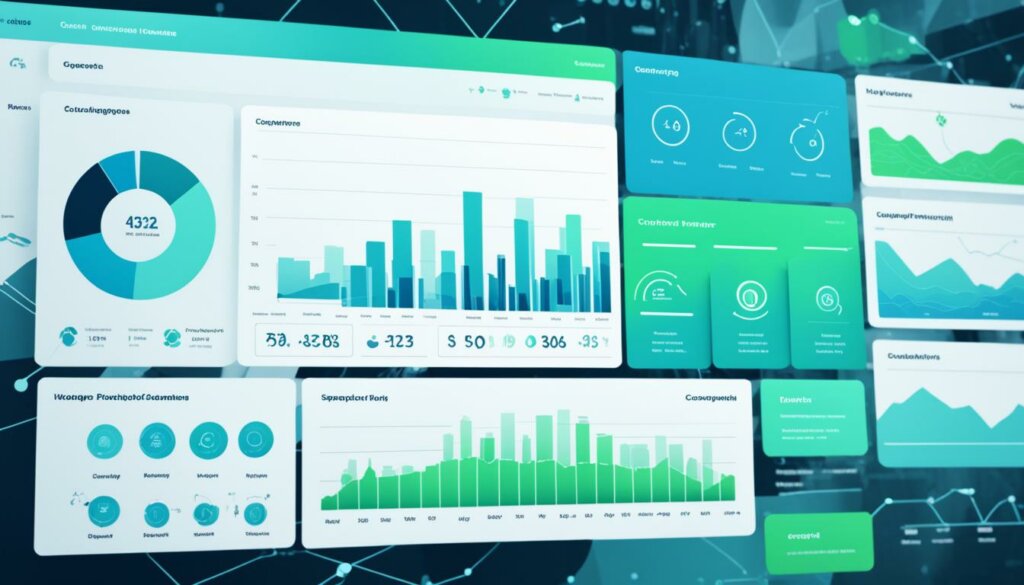
| Company | AI Application | Impact on Customer Experience |
|---|---|---|
| Netflix | Content Recommendations | Personalized content curation leading to higher viewer engagement |
| Amazon | Shopping Personalization | Product recommendations driving repeat purchases and customer loyalty |
| Starbucks | Store Optimization & Personalized Offers | Enhanced satisfaction through tailored services and product availability |
Developing a Strategic Approach to Customer Intelligence AI
In the era of data dominance, the savvy deployment of AI for customer intelligence is paramount. It’s not just about possessing voluminous data but distilling it into actionable strategies. We focus on crafting an approach that leverages machine learning for customer behavior analysis while balancing technological insights with vital human judgment.
Setting Clear Objectives for Data-Driven Decisions
Before diving into the ocean of data, we must chart our course. Establishing clear goals that serve our organizational vision and customer satisfaction metrics is our starting point. Whether the aim is to enhance user experience, personalize marketing campaigns, or streamline sales processes, objectives must be concise and measurable.
Combining AI Insights with Human Critical Thinking
Gleaning valuable patterns from data via AI is just the first step. To navigate the intricate landscape of customer behavior, we integrate machine learning findings with the irreplaceable human element—critical thinking and contextual expertise. This blend ensures nuanced strategies that resonate with target audiences and stay ahead of market trends.
The Importance of Ethical AI Implementation
Employing AI presents unique ethical considerations. We are committed to upholding the highest standards of data privacy and mitigating analysis biases. Operating within regulatory frameworks, we ensure our AI applications are transparent and underpinned by ethical data collection and usage practices.
| Strategic Objective | AI-Powered Tools | Human Expertise Integration | Ethical Considerations |
|---|---|---|---|
| User Experience Enhancement | Behavioral Analytics Platforms | UX Designer Feedback | User Consent Protocols |
| Marketing Campaign Personalization | Predictive Modeling Software | Marketing Analyst Insights | Data Anonymization Methods |
| Sales Process Streamlining | CRM with AI Capabilities | Sales Team Review Sessions | Bias Detection Algorithms |

Technological Ensemble: The Components of AI-Powered Solutions
As we delve deeper into the components that make up the technological framework for Revenue Intelligence (RI), we observe a symphony of advanced tools working in concert. At the forefront of this ensemble are predictive analytics for customer experience and NLP for customer feedback analysis—two pillars that form the bedrock of AI-powered RI systems. They drive our understanding and anticipation of customer behaviors.

Machine Learning and Predictive Analytics in RI
To harness the full potential of machine learning, predictive analytics reflects not just trends but actionable forecasts in customer experience. Algorithms trained on vast arrays of historical data can predict future buying patterns, anticipate market shifts, and guide decision-making processes with markedly increased accuracy.
NLP and CRM Integration for Enhanced Customer Communication
Integrating Natural Language Processing (NLP) with Customer Relationship Management (CRM) systems augments our capacity to analyze and interpret customer feedback. By parsing and quantifying vast amounts of unstructured feedback data, NLP becomes an indispensable asset to our customer service efforts, enabling us to respond to consumer needs with efficiency and personalization.
The Role of Dynamic Pricing in Revenue Intelligence
Dynamic pricing stands out as a key component in revenue intelligence. By leveraging real-time market data and customer purchasing behaviors, AI helps in automatically adjusting prices. This ensures competitiveness and maximizes profit margins, securing an optimized pricing strategy that aligns with the ever-changing market dynamics.
| Component | Function | Benefits |
|---|---|---|
| Predictive Analytics | Forecasts consumer buying patterns | Enhances accuracy in marketing and sales strategy formulation |
| NLP Integration | Analyzes customer feedback | Provides insights into consumer sentiment and improves service personalization |
| Dynamic Pricing Engines | Automated price adjustments in response to market conditions | Boosts competitiveness and profitability through strategic pricing |
Conclusion
As we turn the final page on this exploration, it is clear that the realms of artificial intelligence customer insights and AI for customer intelligence are not just fleeting trends but are foundational to the modern marketing playbook. Businesses poised to thrive in a data-rich future are those who embrace AI as their ally in deciphering the intricate narratives hidden within customer data. Blending the advanced capabilities of AI with keen human insight, businesses stand to offer unsurpassed customer experiences, powering ahead of competitors in an increasingly dynamic marketplace.
Future-Proofing Marketing with AI-Enhanced Customer Insights
As we stand at the brink of a transformation, we recognize the urgency for future-proofing our strategies. Incorporating AI-enhanced customer insights into our marketing efforts equips us with an exceptional foresight into consumer behavior. The insights gleaned not only inform our strategies but also evolve them, ensuring each step we take is in sync with our audience’s ever-changing needs and preferences. This forward-thinking approach is instrumental for sustaining growth and competitiveness within an unpredictable market landscape.
Maintaining the Human Element in AI Strategies
Even as we harness the power of artificial intelligence, we acknowledge the irreplaceable value of the human element. Our commitment to ethical practices and our appreciation for a nuanced understanding of our customer base compels us to maintain this balance. In an ecosystem driven by data, our human perspective interprets and refines AI’s output, ensuring our strategies resonate genuinely with our audience and reflect our company’s values and principles.
Next Steps: Embracing AI for Transformative Market Research
We stand at a crossroads, with transformative tools at our disposal. The next steps we take will define our trajectory in a marketplace that never stands still. By embracing AI for market research with ardor and diligence, we prepare to craft groundbreaking marketing strategies, laser-focused and uniquely adapted to the beat of consumer engagement. As custodians of the brand-customer relationship, we are obliged to stay at the technological forefront—crafting a future as exciting and influential as the AI-powered insights that guide us.
FAQ
How is AI transforming customer intelligence?
AI is revolutionizing customer intelligence by processing vast amounts of data to uncover subtle customer patterns and trends. This enables businesses to gain a deeper understanding of customer behaviors and motivations, leading to more effective marketing strategies and improved personalization.
What role does machine learning play in understanding customer behavior?
Machine learning algorithms analyze customer data to identify behavior patterns, which allows for enhanced audience segmentation and more accurate behavior prediction. This results in a nuanced view of customers that can significantly improve the customer experience.
According to Gartner, what will be the role of AI in market research by 2024?
Gartner predicts that by 2024, 80% of marketing leaders will utilize AI for market research to navigate the complex data landscape and gain valuable customer insights that can drive strategic decisions.
What is the significance of NLP in customer feedback analysis?
Natural Language Processing (NLP) is crucial for analyzing unstructured customer feedback from various sources, including social media, surveys, and customer support interactions. It helps businesses distill vast amounts of textual data into actionable insights, enabling them to respond to customer needs effectively.
Can you provide some success stories where AI has been used effectively in market research?
Success stories of AI in market research include Netflix’s use of AI for content recommendation, Amazon’s personalized shopping experience, and Starbucks’ data-driven optimizations for store layouts and demand forecasting, each demonstrating the profound impact of AI on customer insights.
How should businesses prepare for integrating AI into their market research efforts?
Businesses should set clear objectives for their AI initiatives, meticulously prepare their data for AI analysis, choose the right tools for their needs, combine AI insights with human critical thinking, and continuously monitor and adapt their strategies based on AI-driven feedback.
What components comprise AI-powered solutions for revenue intelligence (RI)?
AI-powered solutions for RI typically include machine learning for predictive analytics and audience segmentation, NLP for processing customer feedback, CRM integration for a unified customer perspective, dynamic pricing engines, and Virtual Assistants for customer service.
What are the ethical considerations when implementing AI in market research?
Ethical considerations include ensuring data privacy and security, avoiding biased analysis, adhering to relevant regulations, and remaining transparent about data collection practices. The goal is to respect consumer rights while gaining valuable insights from their data.


